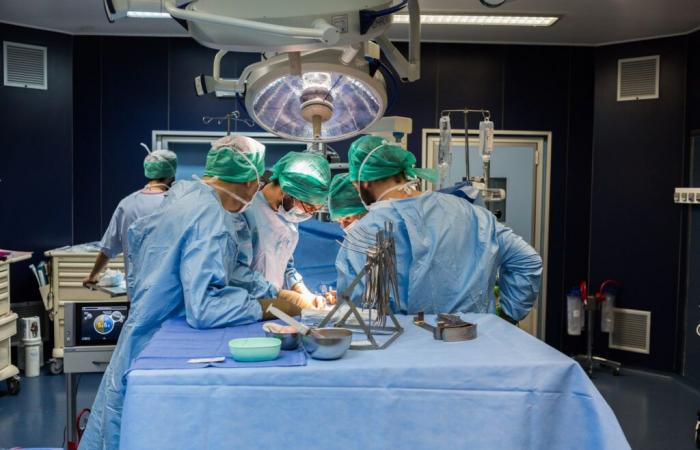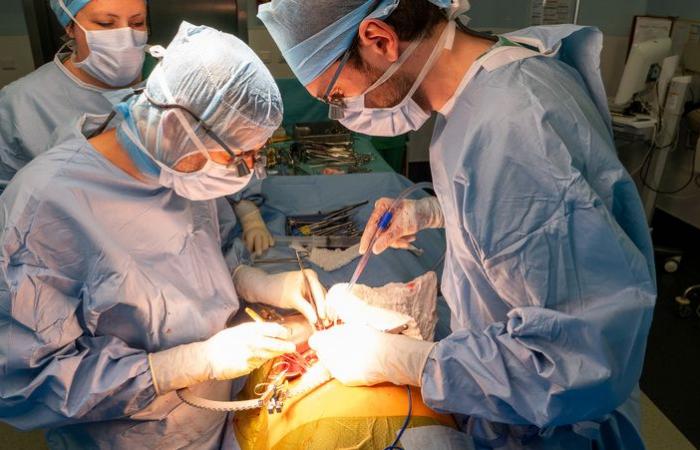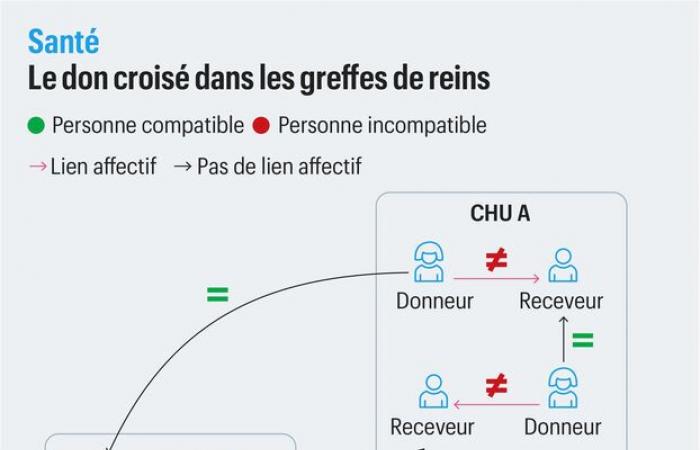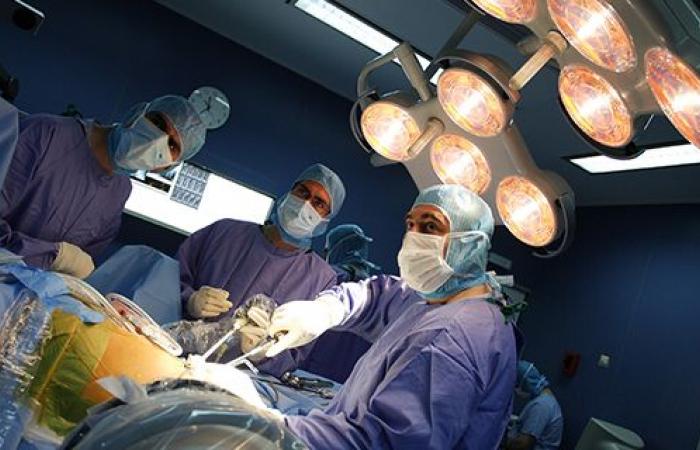This is a major medical feat which has just been achieved at the Bordeaux University Hospital: six patients were operated on at the same time as part of three cross-kidney transplants, a first in France. This feat was made possible thanks to impeccable coordination between the Bordeaux and Reims hospitals, under the supervision of the Biomedicine Agency. A breakthrough that could transform the future of kidney transplants in France.
Crossed kidney transplants make it possible to circumvent the incompatibility between a donor and their sick loved one. Instead of carrying out a traditional transplant, a pair of incompatible donors and recipients is formed with another pair, in order to create a chain of compatible transplants. Until now, only operations with two pairs were permitted by law. But recently the possibility of cross-donating with up to six pairs was opened. This opening thus increases the chances of finding compatible matches and improves access to transplantation for the thousands of patients in chronic end-stage renal failure.
Ce « triplet » kidney transplants, a first in Francewas carried out within 24 hours, thus respecting the legal constraint. This logistical and medical challenge was orchestrated by the Biomedicine Agency, which used mathematical algorithms to identify blood and immunological compatibilities between different donors and recipients. She also ensured synchronization of operations between the two university hospitals, facilitated medical data transfers et supervised the transport of the graftsa crucial factor in preserving their quality.
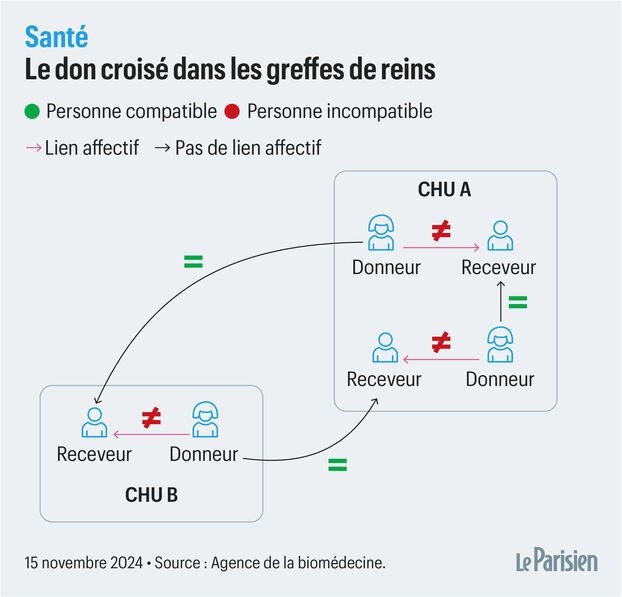
The result: three patients who, thanks to these cross-transplants, now have a compatible kidney, while offering three other people the possibility of saving their sick loved one. A revolutionary advance in the field of organ transplantation.
Operating with living donors has several advantages. First of all, the transplant can be scheduledthus allowing the receiver better preparationboth in terms of medical what psychological. Moreover, the graft is of better qualitybecause the time between harvest and transplant is shorter. Finally, the compatibility between the donor and the recipient being betterthe graft works better and longer. Graft survival rates are much higher for living donations than for deceased kidney donations.

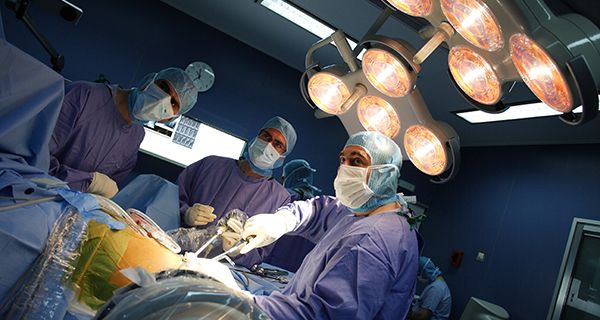
This first achievement in Bordeaux and Reims opens the way to a promising future for crossed kidney transplants in France. And, the icing on the cake, removing a kidney from a living donor does not in any way reduce their life expectancy. Good news, therefore, for all those who wish to donate a kidney to save a life.
Also read: Portrait of Gwendoline: a sparkling Bordeaux woman suffering from a rare cancer
Health

